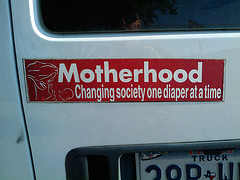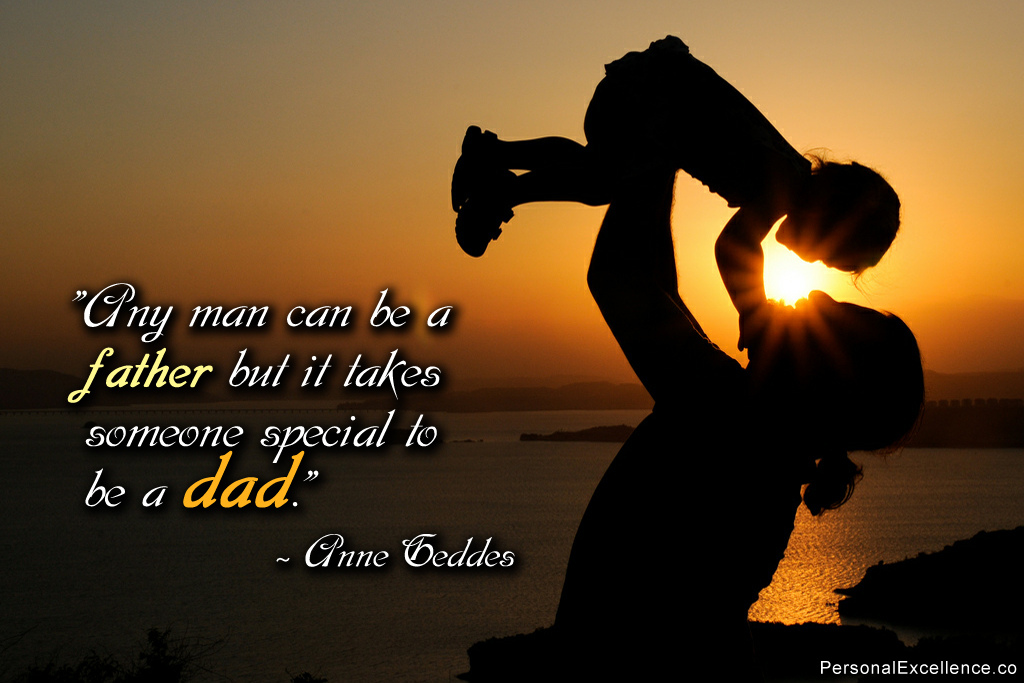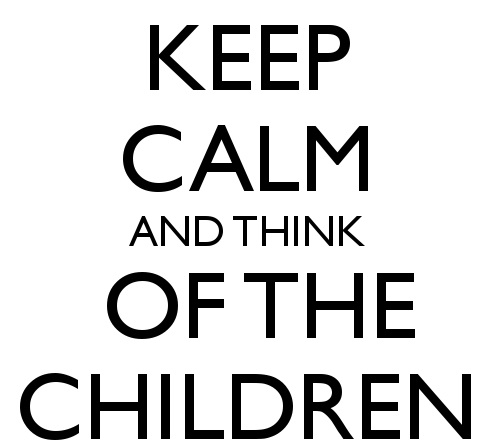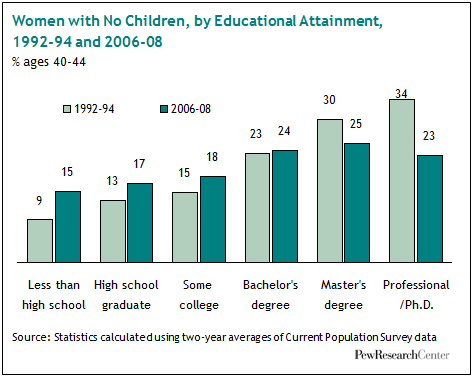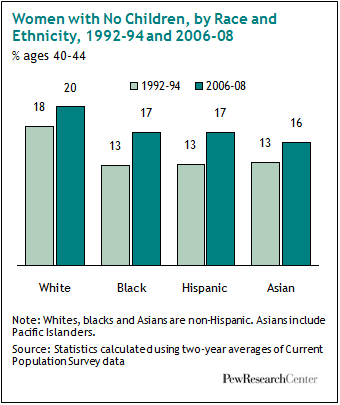Dottie and Me:
Constructing Childless-by-Choice Alternative Rhetorics
Courtney Adams Wooten
As someone who has chosen to be childfree as an adult, I have often felt invalidated by those around me who scoff at this choice and insist I will change my mind. Exploring the focus on parenthood in politics and the media, including social media, this article analyzes the growing presence of childless-by-choice adults and proposes ways that those who choose to remain childless can better represent their interests, particularly in social media. Doing so can produce productive alternative rhetorics that will better allow parents and childless-by-choice adults to dialogue with one another about the choices they have made and the implications of these choices.
In November 2013, I did something many of us do every day: I read an article on Facebook and hit the “Like” button. And before I knew it, my unassuming “like” had landed me in the midst of a heated discussion about motherhood.
The provocative article in question, “Sorry, But Being a Mother is Not the Most Important Job in the World” by Catherine Deveny, criticizes the popular cliché in the title. At one point Deveny claims, “Enabling this dogma devalues the unpaid labor of rearing children as much as it strategically devalues women’s worth at work.” A valuable observation prompts Deveny’s harsh rhetoric: saying that being a parent is the most important job in the world invalidates adults who choose to remain childless. Unfortunately, her position and tone leave little room for productive dialogue between adults with and without children.
Some women involved in the Facebook conversation insisted that motherhood was the most important job a woman could have. Implication: I can only fully experience life if I have children. We were at odds in many ways— they couldn’t understand a woman who didn’t want to be a mother, and I didn’t understand their insistence that motherhood is the most valuable aspect of a woman’s life.
Questioning Childless-by-Choice Adults
Whenever I tell people that I don’t want children (typically in answer to their question “Do you have kids?”), I’m usually hit with a blank stare, slightly accusing and slightly questioning: am I joking? Then a laugh and knowing comment, “Oh, you’ll change your mind.” When my husband told his co-workers we don’t want to be parents, none could understand. One co-worker vehemently argued that adults should be parents. The implication, of course, is that we are shirking our responsibility and/or denying our true desires. Our mutual, thoughtful decision to remain childless is effectively nullified.
I argue that parenthood—although not typically considered an identity feature—is a sociocultural expectation of adulthood, one so privileged that childless-by-choice adults are frequently invalidated. Katie Roiphe calls childlessness a sort of “taboo”, and Lauren Sandler terms it a “stigma.” While some unexpectedly become parents without choosing children, adults often have a choice about becoming parents. It’s one thing to not have children, but actively choosing to not have children is suspect.
And yet that decision is becoming more common. Whereas the choice to remain childless may once have been open only to a privileged group of white, educated women, recent data from the Pew Research Center indicates that childlessness is rising among all women. The field has become more level in the past ten years between women of different educational levels and races/ethnicities.
This data suggests that choosing to remain childless has become more commonplace, crossing socioeconomic boundaries. Nevertheless, those of us who resist pressures to have children for individual, familial, and societal good often find our valuing of other goals discredited.
While childless adults have recently become politically and socially active––through political leveraging to make choice via birth control more widely available and the formation of social media sites in which to gather––trends in society, politics, and media continue to undermine childless adults’ choices.
Parenting, Parenting Everywhere
The almost-constant pressure placed on childless adults by family members, co-workers, and even strangers to have children is pervasive. Even for those who support my decision, I know some still think that I’m playing a game of chicken that will end with a later-in-life child or deep-seated regrets. That’s the local level. On the larger scene, that pressure is escalated by power and influence.
Recently, Pope Francis, the highly-respected leader of the Catholic church, criticized couples who choose not to have children, claiming “A society with a greedy generation, that doesn’t want to surround itself with children, that considers them above all worrisome, a weight, a risk, is a depressed society…The choice to not have children is selfish. Life rejuvenates and acquires energy when it multiplies: It is enriched, not impoverished” (Kirchgaessner). Pope Francis’s influential perspective reflects the common belief that childless adults have made wrong choices based on selfish concerns.
Political Limits on Birth Control Access
The normalization of parenthood directly influences political decisions, particularly ongoing debates about healthcare access. Often, these revolve around women’s access to birth control. In the past year, drastic measures in Texas, Ohio, and Oklahoma among other states have attempted to reduce women’s access to abortion, as seen in the map from the Ms. Foundation for Women.
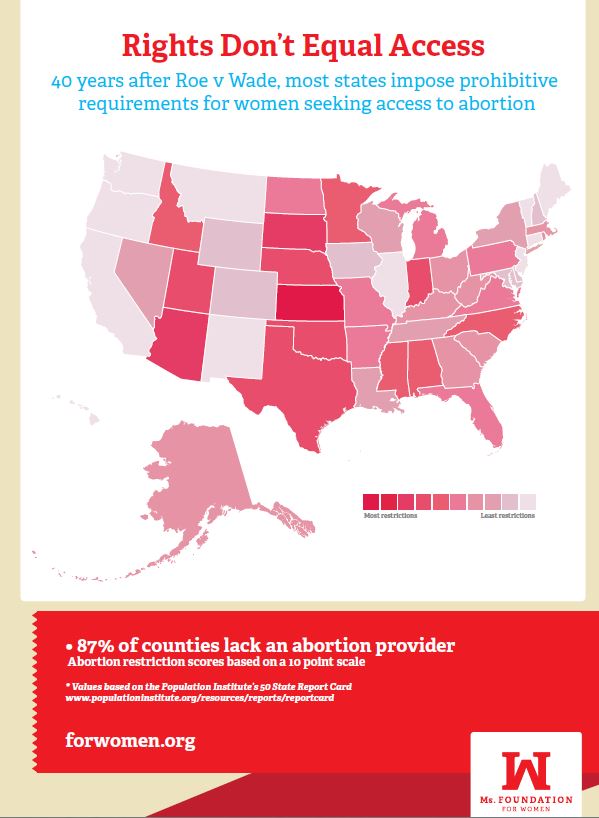
from Ms. Foundation for Women
Annual Report 2013
Furthermore, the 2014 midterm elections were a win for the GOP, a party that supports restrictions on women’s access to birth control and seeks to repeal the Affordable Care Act that provides free birth control to insured women.
Specific cases, such as Hobby Lobby’s successful appeal for religious exemption from the Affordable Care Act because of its birth control coverage and Wheaton College’s religious allowance to refuse the provision of birth control, have also undermined women’s rights to decide whether or not they want children. The measures by which adults – particularly women – even have the choice to remain childless are under political and legal fire.
Television Targeting of Parents
Because so many adults are parents, shows on major networks have long appealed to this audience by reflecting social norms and, as Sarah Carlson argues, rarely representing childless adults. Popular culture reinforces the privileging of both fathers and mothers by constructing children as a prerequistite for a fulfilling life.
Cleaver family from Leave it to
Beaver,
1960 on Wikimedia Commons
Shows like Parenthood and Modern Family prioritize the experiences of parents whose lives seem to revolve around their children. Ostensibly about a group of adults pursuing diverse paths to happiness, the popular show How I Met Your Mother demonstrates the centrality of parenthood: the show is framed around single Ted Mosby’s quest for family life, i.e. marriage and kids; even the implacable bachelor Barney Stinson only finds value in his life and understands love after having a child.
When shows like Marry Me represent childless adults actively using birth control to prevent pregnancy, the question is not whether to have children but when to have children; other shows, including the forensics drama Bones, feature adults who become parents in the show’s narrative. All television shows may not privilege parenthood, but they do subtly reinforce the prevailing attitude that all adults will eventually become parents, even if other aspects of their lives remain important to them.
Meanwhile, childless adult characters are usually stereotyped as the unhappily single aunt, the strange uncle, or the incorrigible bachelor: for example, Roseanne’s sister Jackie or Nick Hawley in Sleepy Hollow. They are others, outliers, exceptions that prove the rule.
Parenting on Social Media
Social media platforms and users often echo the values expressed by religious and political leaders and popular culture. These venues invite adults to share their parenthood with others while obscuring aspects of other adults’ lives. Status updates can include job announcements, house-buying or selling celebrations, or travel photos, but more often they include photos and stories related to parenthood.
Author's life events on Facebook
There is a seemingly limitless daily number of such photos and stories that override “big” events that often must occur for childless adults to report on (as seen through my Facebook life events), threatening to drown out alternate perspectives on adulthood.
Further, as the tongue-in-cheek data from Inkhouse, a public relations and marketing firm, below indicates, Facebook users have little tolerance for posts about “meaningless” things, politics, and self-achievements, many of which are the types of posts childless adults write.
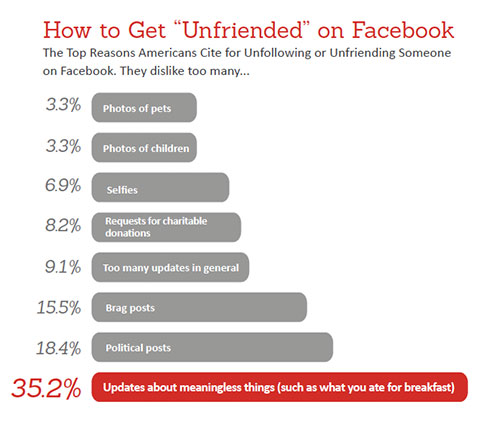
Kari Hulley, "The Unofficial Rules of Facebook"
While only 3.3% of the 1,000 participants cited “Photos of children” as a reason to unfollow or unfriend someone, 35.2% cite “Updates about meaningless things,” 18.4% cite “Political posts,” and 15% cite “Brag posts.” Overwhelmingly, posts produced by childless adults are most likely to result in being unfollowed or unfriended whereas more tolerance is shown for parents incessantly sharing pictures of their kids.
Taken together, these prescriptive social pressures illustrate how our society invalidates the choice to be a childless adult. Alternative perspectives must become more visible in order for all adults to understand that parenthood is a choice we make rather than a religious, political, or societal expectation we must fulfill.
Constructing Productive Alternative Rhetorics
In the past several years, childless-by-choice adults have begun publicly surfacing on social media and in news venues. Childless-by-choice discourse points out the existence of a group of individuals whose perspectives tend to be invalidated due to their rejection of parenthood; it challenges society’s knee-jerk valorization of parenthood.
Those who have been marginalized ask others, albeit sometimes angrily and unsuccessfully, to recognize and respect their choices rather than pretending that these choices are temporary or abnormal. These efforts are crucial, if not always constructive.
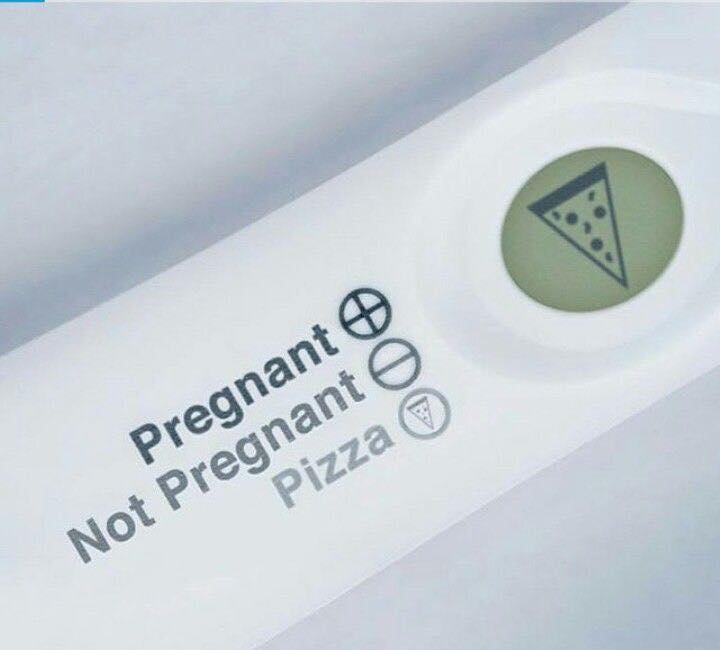
DINKS on Facebook
For childless-by-choice adults to find a platform for productive dialogue, we must help others understand the pressures that adults in our society face to become parents and make visible our choices as equally viable. Childless-by-choice individuals are working to create such alternative rhetorics through social media and news outlets including Facebook communities such as DINKs (Double Income No Kids) and Childless By Choice.
Such social media campaigns have been so effective that even Cosmopolitan, a magazine not noted for being on the forefront of gender politics,ran an article called “10 Things to Never Say to Women Who Don’t Want Kids.” Such increased visibility is a necessary precursor to recognizing the choices available to adults.
If we want to work toward productive alternative rhetorics, we should continually assess the dual criteria of positioning and tone. These tactics determine the construction of responses and whether they will be heard by those who do not hold a similar point of view.
In this case, those who create and spread childless-by-choice alternative rhetorics need to be aware of how positioning and tone can either open a space for discussion with others, especially parents, to analyze the status of parenthood in our society—or construct impenetrable walls of discourse. Below I consider some familiar and potential rhetorical strategies.
Wrongfully Attacking Parents
One approach is to go on the offensive. Deveny’s article, which I reference in the introduction, offers one example of why some childless-by-choice rhetoric is ineffective (further illustrated by the abrasive title of the “Breeder Bingo” card). Deveny positions herself as antagonistic to mothers, seeing them as women who have tried to elevate their social status. In refuting the cliché that being a mother is the most important job, she undermines the role of mothers, claiming that there are many harder and more important jobs. By positioning herself against mothers, she immediately alienates certain audiences.
The tone she uses to discuss motherhood is also unnecessarily derogatory: “…if you're using ‘motherhood’ to assert that you care more about humanity than the next person, if you're using it as a shorthand to imply that you are a more compassionate and hard-working person than the women and men standing around you, then feel free to get over yourself.”
Such rhetoric is not intended to open up a space where mothers and other adults speak freely to one another; instead, it can be read as a backhanded slap in the face to all mothers. It is only natural that some—such as my friend who responded to my “like” or blogger Cassandralj who wrote a response to Deveny’s article—will vociferously react against harsh critique. The resulting escalation can effectively shut down discussion.
Targeting Double Standards
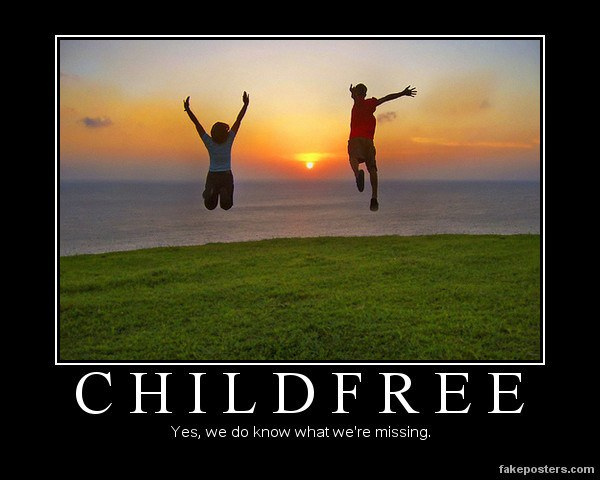
on Pinterest
Other texts that have circulated on social media serve as much better examples of the types of responses that effectively call into question the privileging of parenthood. Zooey Deschanel, despite not being a childless-by-choice adult herself, rather famously confronted the double standard whereby women, not men, are frequently asked when they are going to have children.
In an interview, she bluntly states, “‘When I was married, that was the first thing people wanted to know… Like every woman is dying to give birth! I don't think so. Nobody asks a guy that. And you go into a supermarket and every tabloid is like, 'Pregnant and Alone!' Stuck in this 1950s ideal of how a woman should live her life. That's not something that defines me at all’” (“Zooey Deschanel Shows”).
Rather than denigrating parents, Deschanel focuses on her own choices to not have children and questions assumption that she wants to be a mother, positioning herself as a woman fighting for the respect of all women’s choices. Her tone is indignant but resolute, displaying an unwillingness to give in to society’s stereotypes while inviting a discussion of the societal expectations placed on women in particular. Such a response focuses on the role childless-by-choice adults have and how we can question prevailing ideas of adulthood without shutting anyone out of the conversation.
Refocusing on Childless Adults
Lauren Sandler’s cover piece for the Times from August 2013 similarly presents a balanced view into the lives of those, particularly women, who have chosen to remain childless.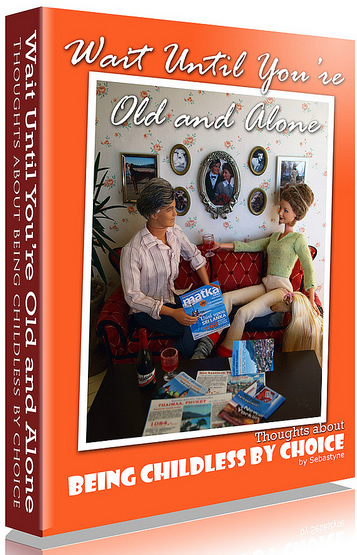
"... Thoughts about Being Childless by Choice,"
Sebastyne Young.
Sandler presents information about the rise in childlessness, discusses the societal pressure for adults to have children, and provides the views of adults who have chosen not to have children. Throughout, the positioning Sandler takes is not oppositional but, instead, inclusive, providing an informative look into the perspectives of those who don’t want children.
The tone of the piece is generally engaging and fair, even when her interviewees express strong views. For example, Jena Starkes asserts, “If [motherhood is] the hardest job in the world, I’m damn happy I don’t have to do it.” Despite her harsh tone, Starkes doesn’t care to take issue with the claim that mothers have the hardest job in the world. Instead, she turns attention to her own decision to not take on this responsibility.
Although simply presenting the lives and perspectives of childless adults may be a weaker position to take than directly countering societal claims about parenthood, it is ultimately a more productive stance than arguments about whether parents “work harder” or are less selfish than childless adults. Such productive positioning and tone are necessary for childless-by-choice adults to produce an alternative rhetoric that others, particularly parents, are willing to engage.
A Call for Dialogic Intervention
Quick reactions and strong rhetoric against parenthood only serve to polarize parents and those who choose to remain childless. In order to challenge society’s marginalizing focus on parenthood, as David L. Wallace claims about alternative rhetoric, “we must take up the task of educating ourselves about how to bring voices and concepts from the margins into substantive interaction with the discourses of power” (W23).
Childless-by-choice adults, to the extent they are comfortable, need to engage in conversations about our choices with anyone who asks or will listen. We must tell those in power that decisions, particularly about birth control, affect our life choices. We must call on the media to represent a wider range of adults.
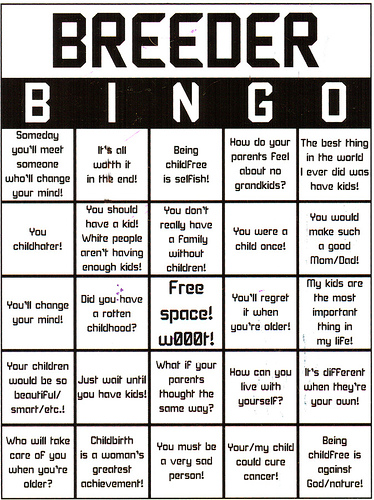
"Breeder Bingo" by Liz Henry
And we must find ways to use social media to make our life choices more visible, even if such posts invite contentious debates and conversations. My friend’s start of an online conversation, rather than my hitting “like,” began a thought-provoking dialogue about motherhood.
Joining Facebook pages such as “Childless by Choice” and “Double Income No Kids" (aka DINKS) and sharing posts that reflect careful tone and positioning are a couple ways to reinforce this life decision.
There are also humorous ways to encourage dialogue. The “Breeder Bingo” card asks parents to laugh at the cliché reasons they and others tell childless adults to have children. This kind of humor can lead to productive dialogue by targeting the language people actually use to encourage others to have children and asking us to interrogate it even as we laugh at it.
Another strategy is for childless adults to display the parts of their lives they take enjoyment from if they feel comfortable doing so. I frequently post pictures of my dachshund, Dottie, on my Facebook wall tagged “Dottie looks of the day” because it allows me to share a small part of my life on a routine basis.
I’m not entirely certain that sharing such posts makes my family and friends more likely to accept my childfree lifestyle. However, I do know that I frequently interact with family and friends via these posts in much the same way posts of children may encourage interactions on social media.
A recent post related to The Walking Dead garnered several comments and many “like”s from family and friends, illustrating their interest in Dottie and, as an extension, my representation of my life.
A social media presence, in part, is predicated on frequent posting, but childless-by-choice adults such as myself often are unsure about what to post that won’t result in our being unfollowed or unfriended.

Before I began posting “Dottie looks of the day,” I would have frequent time spans where I would post once a week or less because I wasn’t sure what to post about. Dottie posts allow me to share my life and reinforce its value despite my choice to remain childless.
Visibility—whether about our own lives or about the choice to not have children—can be contentious and even frightening, but if achieved with a careful use of tone and positioning, such visibility validates the lives childless adults have. Further, it may be a fruitful way to encourage productive dialogue between all adults.
To this end, I ask readers to envision and create your own rhetorical presence on social media or in the world, and to leave feedback about the strategies you use to make your lives visible and to reinforce, even if subtly, the validity of your life choices.
Courtney Adams Wooten is an assistant professor of English and first-year writing program administrator at Stephen F. Austin State University. She hopes that this article will persuade her remaining doubtful relatives and friends that she really is serious when she says she doesn’t want children (yes, NEVER). All of her career goals have been achieved now that she has published about the best dog in the world, Dottie, and shared Dottie’s face with the world.
Beck, Laura. “10 Things to Never Say to Women Who Don’t Want Kids.” Cosmopolitan.com. Hearst Communications, 29 March 2014. Web. 4 August
Carlson, Sarah. “We Need More Childless Women, Couples on TV.” Pajiba. n.p. 6 March 2015. Web. 6 March 2015.
Cassandralj. “Sorry Catherine Deveny, But Being a Parent is the Most Important Job in the World.” Worklifemum. Wordpress, 19 November 2013. Web. 19 November 2014.
Deveny, Catherine. “Sorry, But Being a Mother Isn’t the Most Important Job in the World.” The Guardian. Guardian News, 18 November 2013. Web. 20 November 2013.
Kirchgaessner, Stephanie. “Pope Francis: Not Having Children is Selfish.” The Guardian. Guardian News, 11 February 2015. Web. 12 February 2015.
Roiphe, Katie. “Do We Secretly Envy the Childfree?” Slate. The Slate Group, 26 April 2012. Web. 1 August 2014.
Sandler, Lauren. “None is Enough.” Time 12 August 2013. Academic Search Complete. Web. 2 September 2014.
Wallace, David L. “Alternative Rhetoric and Morality: Writing from the Margins.” CCC 61.2 (December 2009): W18-W39. Web. 10 July 2014.
“Zooey Deschanel Shows Her ‘Fiery Feminist Side’ in the August Issue ofInStyle.” InStyle. Time, 7 July 2014. Web. 10 July 2014.
The inclusion of copyrighted materials in this article are for critical, scholarly, and non-commercial purposes, constituting fair use, as provided for in Title 17 U.S.C. section 107 of U.S. Copyright Law. Photographs and images have either been provided by Creative Commons or have been previously published and attributed to the authors, and all authors have been attributed when and where appropriate.
